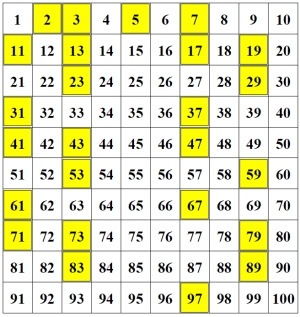I have a simple test for you. Take a look at the last 10 leads from your prospect list. How many of these leads did you close? If your answer is five or less, you have some work to do. The second question I’m going to ask you is, how many of the ones that you did not close, did you do a follow up call or email?
Let’s be honest. As a sales executive or representative, we hate follow-up calls. They’re simply boring. No one likes to do the mundane follow-up when there are exciting new deals coming in. But the truth of the matter is that from DIGITTO Media’s sales and also from our white label SEO, we see the vast majority of sales comes from follow-ups. So do they matter? Yes, A LOT.
We’ve seen sales go through the roof because sales executives decided to follow-up with the list of prospects that they already have, instead of spending all their time on mining for new leads.
HOW FOLLOWING UP AFFECTS CLOSING RATES
When you follow up with on a prospective lead, think of it as doing a marketing campaign with re-targeting. We understand in marketing that re-targeting in an Ad Campaign improves click-through rates and lead generation. Did you know, the same concept applies to closing sales?
A potential prospect these days gets hundreds of emails a day, in addition to getting hundreds more messages from social media posts, apps, and other ad sources all competing for their attention. What makes you believe that your ONE email or TWO phone calls will be enough? Often times, unless the buyer really needs the marketing service, it is not enough.
That is where you need to understand your advantage, and why you should not give up on a lead simply because he or she didn’t respond after your one or two messages.
BEWARE OF YOUR CLOSING RATE ADVANTAGE
Assuming that when you close, you are already making the personal touch to your messages and phone calls, then you’re already one step above all the noise out there that don’t have this advantage.
This means, for your warm lead, you have already talked to the prospective lead on a call, or you have already exchanged emails with them. You’re able to get a prospect’s direct attention, which is already far AHEAD of any other advertisement trying to get their attention.
Let’s look at it this way. With a prospect that is interested in SEO or PPC, you can safely assume they’re gong to look up SEO and PPC on Google or do their own research. What can you expect when they do that? They will see ads for other SEO and PPC companies show up. Chances are, they will click into them to see what others offer, and not only consider your proposal. These ads then re-target and come back in front of the lead when he browses other sites on the web.
Now, in comparison, your one or two calls/emails that you made to the client doesn’t seem to have as much magic anymore.
HOW SOON SHOULD YOU FOLLOW-UP TO CLOSE A DEAL?
Ideally, we want to establish a working scenario where you have a balance between reminding a lead that you’re there but not be too annoying, which can hurt your deal. You certainly don’t want to come off as being desperate. On the other hand, you could be competing for the sale, and the lead has multiple offers to choose from. In either case, you don’t want to wait too long to send your reminders and follow-ups.
Some people say that you should send a reminder every 2-3 days, while others think it should be once a week. The problem is that doing so creates a level of predictability in the mind of the lead. They might start having a “here comes Devon again” mentality.
One trick that people don’t know much about is to decrease the frequency of your response rate as time goes on. The way this works is to send follow-ups more frequently when the lead is warm, and reduce that follow-up rate as time goes on.
The more that you understand how this frequency works, the better you are at riding the waves of a lead to make your way to a close! Learning this one concept is absolutely crucial so you don’t get put on to a SPAM or DNC list. Navigating this process well will lead you to doubling or tripling your sales.
We’ll show you below exactly what that frequency should be if you’re interesting in seeing exactly how the closing strategy plays out.
One question that comes up often, is it ever too late to follow-up? The answer is never. We’ve had cases where the follow-up was made 1-2 months after the initial call, and the deal still got closed. Certainly not ideal, but the answer is to never give up!
WHEN DO YOU STOP PURSUING CLIENTS?
The short answer is after 6-months to one year. Yes, some of you might gawk at that answer, but let me explain. First, as you will see below, it’s not that many follow-ups. Second, the problem a lot of times is not IF the lead is ready to buy, but WHEN the lead is ready to buy. Keep in mind, we are selling marketing services. There is hardly a business on this planet that cannot benefit from services that help grow their business.
However, what gets in the way is probably timing. The lead might be interested, but he or she, say, might not get to approving the marketing budget for another 2 quarters. Or the lead might not start on that one project that needs marketing services until a few more months down the road.
The question is then, are you going to be there for him when he needs your services? That’s where follow-up’s come in. If you don’t believe it, try this out: you don’t even need a 6 month or 1 year follow-up. Extend your leads with follow-ups from a few days to a few weeks, or even a few months. Then watch your closing rate jump!
THE PRIME FREQUENCY BLUEPRINT TO CLOSING LEADS
I’m sure you didn’t come here to learn math lessons, but the secret to all of this is to understand that our world, and therefore the people in it are driven by underlying mathematics.
Don’t worry, this won’t hurt your brain. All you have to do is know what prime numbers are. The first few prime numbers are 2, 3, 5, 7, 11, 13, 17, 19, 23 and 29.
Here’s a prime chart with the PRIME numbers highlighted. All you have to do is remember to WAIT the number of days based on the prime number to follow up.
Here’s an example of a 4-5 month follow-up plan:
- 2 Days after Sales call: Follow-up
- 3 Days later: Follow-up
- 5 Days after last follow-up: Follow-up
- 7 Days after last follow-up: follow-up
- 11 days after last follow-up: follow-up
- 13 days after last follow-up: follow-up
- 17 days after last follow-up: follow-up
- 19 days after last follow-up: follow-up
- 23 days after last follow-up: follow-up
- 29 days after last follow-up: follow-up
…and so on.
You can also use this to mix in follow-ups as calls, messages, or emails. That’s completely up to you. The goal is to reach the buyer and be there for them when they need your services. Let us know what how this affects your sales closing rate in the comments section below.
Good luck!





